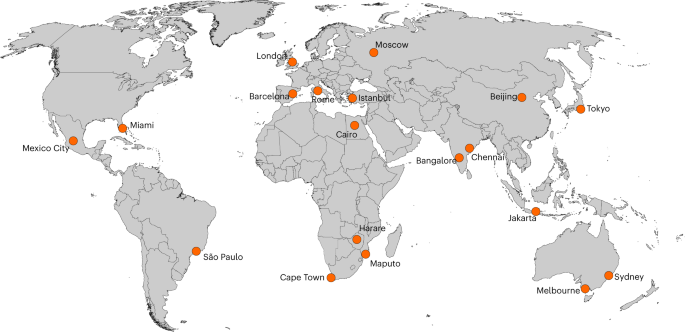
Abstract
Over the past two decades, more than 80 metropolitan cities across the world have faced severe water shortages due to droughts and unsustainable water use. Future projections are even more alarming, since urban water crises are expected to escalate and most heavily affect those who are socially, economically and politically disadvantaged. Here we show how social inequalities across different groups or individuals play a major role in the production and manifestation of such crises. Specifically, due to stark socioeconomic inequalities, urban elites are able to overconsume water while excluding less-privileged populations from basic access. Through an interdisciplinary approach, we model the uneven domestic water use across urban spaces and estimate water consumption trends for different social groups. The highly unequal metropolitan area of Cape Town serves as a case in point to illustrate how unsustainable water use by the elite can exacerbate urban water crises at least as much as climate change or population growth.
Main
The sustainable management of urban water supply constitutes one of the key challenges of our time1. During the first two decades of the twenty-first century alone, more than 80 large metropolitan areas have […]











I totaly agree with you, Stephan about Citizens United and our corrupt Supreme Court!